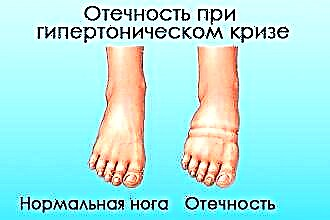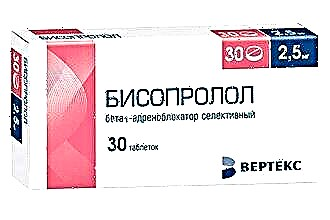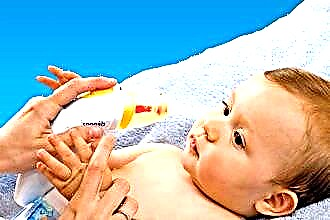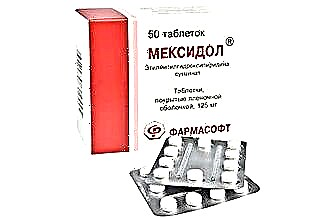It is not at all necessary to lead an unhealthy lifestyle to learn about the hypertensive crisis and its consequences by your own example. Many factors influence the development of the disease. Various causes of the condition provoke a number of consequences for the body in the future, which you need to know about.
Hypertensive crisis is a fairly common phenomenon that occurs in people over 40. The pathology may not have any warning symptoms. Often, it appears at moments of increased stress, affecting the autonomic nervous system.
Causes of occurrence
 The main method of preventing a hypertensive crisis is to effectively suppress the causes that cause it, be it external or internal factors. Increased stress in the body can be the cause of diseases of the adrenal glands and kidneys, their vessels, which tend to lose their elasticity with age.
The main method of preventing a hypertensive crisis is to effectively suppress the causes that cause it, be it external or internal factors. Increased stress in the body can be the cause of diseases of the adrenal glands and kidneys, their vessels, which tend to lose their elasticity with age.
The prerequisites and reasons for the appearance of a hypertensive crisis include:
- Low emotional and psychological stability, the presence of neuroses.
- The presence of large psychological stress that provokes stress.
- Genetic inheritance.
- Dysfunction of the endocrine system.
- Hormonal imbalance.
- Retention of fluids and salts as a result of an unbalanced diet.
- Passion for bad habits.
- Abrupt, constant changes in atmospheric pressure.
- Chronic diseases, their seasonal exacerbation.
- Kidney dysfunction.
- Change of medicines to similar ones, without prior consultation with a specialist.
- Cervical arthrosis.
One or more of the listed factors of occurrence may appear depending on the dominant signal of a certain part of the vegetative system. In this regard, a hypertensive crisis has a classification:
- Hyperkinetic type.
It tends to develop with increased efficiency of the sympathetic divisions of the autonomic system. A characteristic feature is the presence of this type in people under thirty, in particular in men. It tends to be accompanied by a pronounced increase in blood pressure, excitement of the nervous system, increased body sweating, increased efficiency of the heart, accompanied by intense dizziness, in which a headache can be severe. In this case, often the symptoms of this type of pathology are tremors of the limbs, dull pain in the chest area.
A characteristic redness of the face may appear, the person feels dryness of the mucous membrane of the oral cavity.
This type of hypertensive crisis leads to disappointing consequences due to severe complications:
- a strong weakening of blood circulation in the brain;
- internal hemorrhage in the brain;
- the appearance of myocardial infarction;
- the appearance of cerebral edema;
- kidney dysfunction;
- violation of the organs of vision.
With a similar range of problems, many patients are at risk of having a heart attack or stroke at a young age, which can be fatal.
- Hypokinetic type.
It tends to manifest itself slowly and gradually. Often among the patients with the second type of hypertensive crisis, the majority are middle-aged women. This can be facilitated by the failure of the hormonal background, preceding the menopause. The first symptoms appear in advance, within a few days before the full manifestation of the hypertensive crisis. Symptoms include:
- Sluggish state of health of the patient, increased drowsiness.
- Lethargy and reduced pace of work.
- Constant dizziness.

- Severe pain in the temporal lobe and on the sides of the head, the pain washes to have a bursting character.
- The presence of nausea, the appearance of vomiting, which does not end with a further improvement in well-being.
- Deterioration of vision.
- The appearance of pallor, dry skin.
This type of hypertensive crisis is accompanied by the appearance of a rather pronounced swelling, as a result of the retention of salts and fluids in the human body. Added to these manifestations is a decrease in heart rate and an increase in the volume of pumped blood, which creates significant problems for the heart.
If the patient has developed diseases of the left ventricle, this can lead to pulmonary edema, which is also characteristic of the hypokinetic type of hypertensive crisis.
Complications
What is a hypertensive crisis, what are its consequences? With progression, the pathology has the ability to go into the eukinetic type (convulsive or cerebral). He tends to form both from the first and from the second type of hypertensive crisis. A neurologist deals with eukinetic hypertensive crisis. This type of pathology entails impaired blood circulation. Against this background, patients experience severe convulsions. At the same time, a special approach is required not only to the provision of medical care, but also to the subsequent treatment of hypertensive crisis. The eukinetic type tends to have an effect on the body and carry the following complications:
- the occurrence of a heart attack in a patient;
- progression of cardiac arrhythmias;
- the risk of having a stroke;
- severe complications of kidney function;
- the occurrence of edema of the brain and lungs.
When constructing a diagnosis, all descriptions of the patient's poor health, his age and clinical indicators are taken into account. Further, they are compared with the symptoms of hypertension characteristic of:
- dysfunction of the kidneys;
- disorders of the endocrine system;
- the presence of craniocerebral injuries of varying severity;
- neurocirculatory dystonia, showing a pronounced severity of the symptoms of the disease;
- brain tumors in the presence of high blood pressure;
- the results of the use of various types of narcotic substances (LSD, cocaine).
An uncontrolled increase in blood pressure increases the risk of a threat to the patient's life. Violation of blood circulation in the brain in the presence of a complicated type of hypertensive crisis leads to undesirable consequences for the patient, even in the flesh to death. According to doctors, about half of patients who have a complication of a hypertensive crisis have a risk of death within several years in the absence of appropriate patient care and treatment.
After finding out the reasons for the appearance of a hypertensive crisis in a patient, doctors apply the type of treatment that will correspond to the manifested form in the patient. However, this is complicated by the unexpected occurrence of a hypertensive crisis and the unwillingness of the patient's relatives or people around him to provide proper medical care when he first appears.
What to do if a person has a hypertensive crisis? It is worth having an idea of its symptoms, which tend to occur at all stages of the development of the disease. These include:
- Uncontrolled increase in blood pressure.
- Sharp headache in the parietal and occipital region of the head.
- The presence of dizziness with a decrease in the patient's visual capabilities.
- Painful sensations in the chest area with an acceleration of the heartbeat.
- Rapid breathing due to lack of oxygen in the blood.
- Persistent nausea or vomiting without further improvement in the patient's well-being.
- Severe drowsiness or loss of consciousness.
Dealing with the consequences
After a hypertensive crisis, many patients tend to feel a number of unpleasant symptoms, such as headaches and dizziness, which are associated with the influence of pathology on the human body.
These sensations tend to persist for a fairly long time. However, there is always the possibility of overcoming them, with the ability to tone your body.
Dizziness and headaches
 Often it is dizziness and headaches that are the direct consequences of a hypertensive crisis, accompanied by periodic deterioration of vision, darkening in the eyes, increased drowsiness and disruption of the vestibular apparatus.
Often it is dizziness and headaches that are the direct consequences of a hypertensive crisis, accompanied by periodic deterioration of vision, darkening in the eyes, increased drowsiness and disruption of the vestibular apparatus.
This is all related to natural processes, restoration and restructuring of the body for the further normalization of blood pressure. He needs to get used to the new features of his work. To overcome dizziness and successfully restore the body, doctors recommend using drugs and traditional medicine in combination with a balanced diet.
Dizziness after a hypertensive crisis occurs as a result of a disturbance in the uniform flow of blood entering the human brain.
As a result of frequent and sharp increases in blood pressure, the walls of blood vessels suffer, a process of violation of elasticity occurs, and their thickening can occur. With a hypertensive crisis, the body also feels a lack of nutrients that contribute to correct activity. This can affect your well-being, not only in the form of dizziness. There is also the possibility of loss of consciousness or fainting.
Deterioration of well-being in certain cases can occur as a result of an unexpected drop in blood pressure. Also, dizziness tends to manifest itself if the patient is in a state of complete calmness and immobility, or with a slight movement of the head. The symptom may worsen even with closed eyes, with an acceleration of the pace of walking, slight tilting movements, after a sharp change in body position, prolonged sitting, while sleeping.
Such complications after a hypertensive crisis, such as an increase in the frequency and severity of dizziness, can be influenced by a number of the following factors:
- change in meteorological conditions;
- change of climatic zones;
- hormonal disorders;
- emotional instability;
- deterioration of a person's physical health;
- drinking drinks containing caffeine and other natural stimulants (coca-cola, green tea, energy drinks);
- smoking and alcohol.
Experts insist on carrying out additional treatment after suffering a hypertensive crisis, aimed at restoring the work of blood circulation and maintaining vascular tone. Only with strict adherence to medical recommendations will the patient be able to get rid of prolonged and frequent dizziness.
Medications
The main goal of drug treatment after a hypertensive crisis is to prevent the cause of its occurrence. Timely use of drugs contributes to the speedy recovery of the patient.
Doctors say that dizziness associated with the consequences of a hypertensive crisis and its severe forms of manifestation is often aggravated by the presence of atherosclerosis. To prevent a deterioration in the patient's well-being, the doctor may prescribe medications belonging to the groups of diuretics, ACE inhibitors, antispasmodics.
Also, the most elementary method of preventing headaches and dizziness is the use of a special plaster for hypertension, which includes a number of medicinal herbs, medicines that are crushed so hard that they can enter the blood vessels through the skin and enter the body thanks to natural blood circulation.
The main actions of the patch help relieve the main signs of dizziness, promote better absorption of antihypertensive drugs. Also, the positive effects of the drug include increasing the efficiency of the brain, improving the tone of blood vessels and their elasticity, relieving fatigue. However, it should be borne in mind that with excessive use of the patch, dizziness and severe headaches can worsen.
The methods of treatment by methods of traditional medicine, mainly, include taking a decoction of wild rose, using freshly squeezed juices from a variety of vegetables and fruits.
 Continuing to feel dizzy after hypertensive crisis treatment? This can only indicate that the treatment provided was not enough, and it should be extended until the unpleasant symptoms are completely eliminated, and this despite the fact that the pressure can return to normal. Continuing treatment requires the patient to be completely calm, both internal and external. Protect yourself from all annoying external factors. Try to be at rest as often as possible, ventilate the room more often in order to breathe fresh air as often as possible, enriching the blood with oxygen. If you still have a headache, you should contact your doctor.
Continuing to feel dizzy after hypertensive crisis treatment? This can only indicate that the treatment provided was not enough, and it should be extended until the unpleasant symptoms are completely eliminated, and this despite the fact that the pressure can return to normal. Continuing treatment requires the patient to be completely calm, both internal and external. Protect yourself from all annoying external factors. Try to be at rest as often as possible, ventilate the room more often in order to breathe fresh air as often as possible, enriching the blood with oxygen. If you still have a headache, you should contact your doctor.
When the patient's anxiety and activity increase, doctors recommend the use of sedatives. You should not hesitate to go to doctors again if your health condition worsens.
Complete completion of the treatment prescribed by the doctor is mandatory. A negligent attitude to the prescriptions of specialists is a direct path to frequent repetitions of crises. Weak physical condition and poor health are indicators of pathological processes, which tend to worsen at the most unexpected moment.
Preventive methods
Preventive methods aimed at preventing the appearance of a hypertensive crisis are often aimed at eliminating the main causes of the onset of the disease, especially if the patient previously has arterial hypertension. Prevention methods include:
- Compliance with the regime of the day (work, rest, food).
- Regular use of drugs that contribute to the optimal normalization of blood pressure.
- Exclusion from the diet of foods containing salt and animal fats.
- Prevention of the development of arthrosis of the cervical spine and other diseases that affect the correct process of blood circulation.
- Exercises exercise therapy, the use of therapeutic massage.
- Periodic inpatient treatment.
- The use of sedatives.
- Treatment in sanatoriums or health resort complexes.
- Quitting bad habits such as smoking and drinking.
Hypertension tends to manifest itself rather unexpectedly and quickly, from which it follows that it is rather difficult to prevent the development of the disease.
It depends solely on the lifestyle of the person himself. Timely consultation and examination by a doctor will help a person to prevent the occurrence of a hypertensive crisis.




